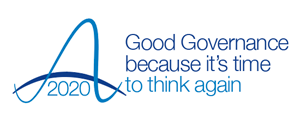Staff reward
13 July 2020

The NHS Long Term Plan and the Interim NHS People Plan both tacitly recognise that in order to provide the care that befits a world-class 21st century healthcare system, more staff are necessary.
Despite this, the King's Fund highlight that, with no clear workforce strategy since 2003, the NHS is in the midst of a ‘deepening workforce crisis’.[1] Across mental health, community services and NHS hospitals, there is a reported workforce gap of more than 100,000 FTE staff. This is a consequence of both recruitment and retention challenges.
These shortages are likely to widen. In the wake of Britain’s decision to leave the EU, and subsequently the onset of the COVID-19 pandemic, it has been reported that international recruitment of healthcare professionals has been drastically reduced, impacting the ability of the NHS to meet recruitment targets and staff services effectively and safely.
At a national level, it is clear that workforce plans will need to be revisited and innovative recruitment and retention approaches developed. For example, NHS England offers a retention support programme to help trusts improve their turnover rates, which, since its inception in 2017, has helped reduce nursing staff turnover rates from 12.5% to 11.9%, and mental health clinical staff turnover rates from 14.3% to 13.4%.
At a local level, many NHS Trusts are implementing a range of novel approaches to address recruitment and retention challenges. This has included the introduction of ‘instant job offers’ – whereby it is possible to apply, be interviewed and receive an offer all in one day – and new roles such as healthcare support workers and trainee nursing associates. It will be crucial that initiatives like these are continued and supported in the future.
The COVID-19 effect
Central to the recruitment and retention issue are fundamental questions around risk and reward, which have only been exacerbated through the pandemic.
Public attitudes towards the NHS and its staff were already positive before COVID-19. Nurses and doctors are consistently among the most trusted professions and the NHS is routinely cited as the thing that makes people proudest to be British.
The outbreak of COVID-19 has only boosted the public’s positive attitude towards NHS staff, with frequent public displays of gratitude both in person and online, particularly via social media.
However, so far this has not been matched by any material recognition. Indeed, in some instances the opposite appears to be the case – a recent letter from Care Minister Helen Whately appeared to row back on Government pledges to pay student nurses for their vital work during the pandemic, stating that: “Student nurses in training are supernumerary and are not deemed to be providing a service. They are required to undertake 2,300 hours of clinical practice to learn skills necessary for entry to the workforce. Whilst they may be performing limited clinical duties, this is under close supervision and they are not being paid to staff hospitals.”
Following significant public backlash, the government clarified its position and confirmed that student nurses will in fact be paid until their NHS frontline contract ends.
What does meaningful reward look like?
This groundswell in support can also be utilised to help address some of the longstanding recruitment and retention issues; there can be no doubt that now is also the time to consider what meaningful reward looks like for the NHS and its staff. This must include a sensible discussion around how health and social care sector, as a whole, can be strengthened, including by increased funding and more comprehensive staff training and development opportunities.
Questions will also need to be asked by the boards of NHS organisation, as well as by the public, about the value that should be attached to certain roles. The COVID-19 experience has made clear that those roles that have been deemed ‘essential’ during the pandemic are also often those which receive the least financial remuneration. There seems to be a long-standing view that because those working in healthcare tend to have altruistic motivations, there is less need to increase their compensation.
However, we know that there are currently and will continue to be significant recruitment and retention challenges. Without a serious debate matched by action on staff reward and remuneration it is unclear how health and social care services can be appropriately resourced in the future.
Questions for boards
NHS boards clearly have a vital role to play in that debate. As a starting point, we would advise engaging with the following questions:
- What are we doing as a board to demonstrate that we are looking seriously at the strategic importance of reward issues?
- What role do we want reward to play in our approach to keeping talent and succession planning?
- What data do we use to understand the make-up of our whole workforce – not just those we directly employ?
- Where is comparative intelligence about reward and retention considered and with what consequences?
- How do we approach reward in our staff survey and staff engagement activities and what has changed as a result over the last five years?
If you have any questions or comments about this briefing, please call us on 07732 681120 or email advice@good-governance.org.uk
[1] NHS workforce: our position
Chris Smith
Consultant
